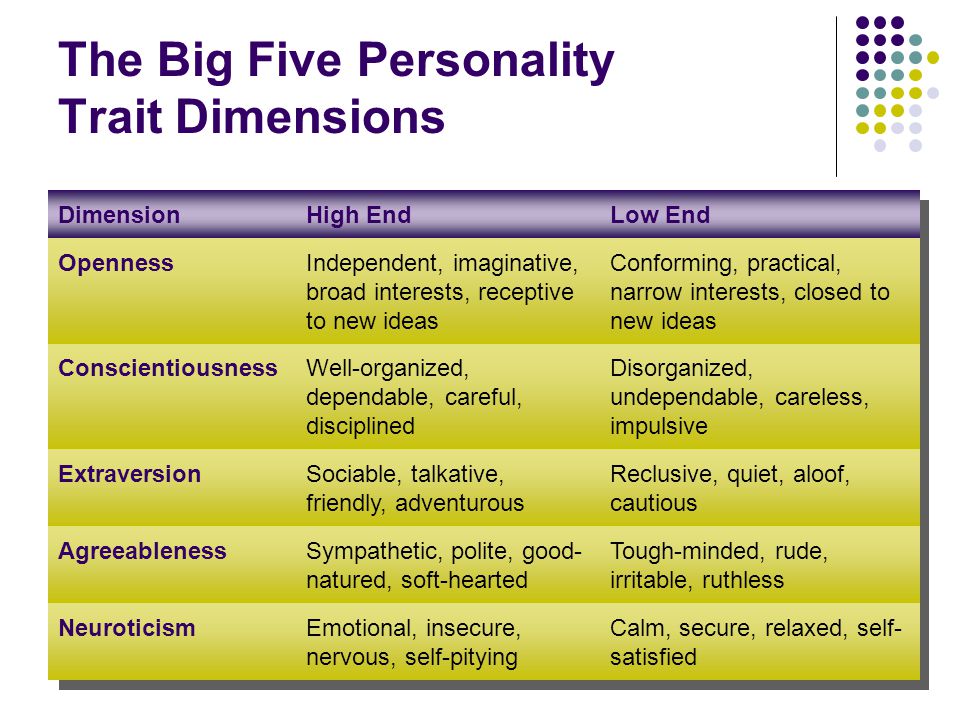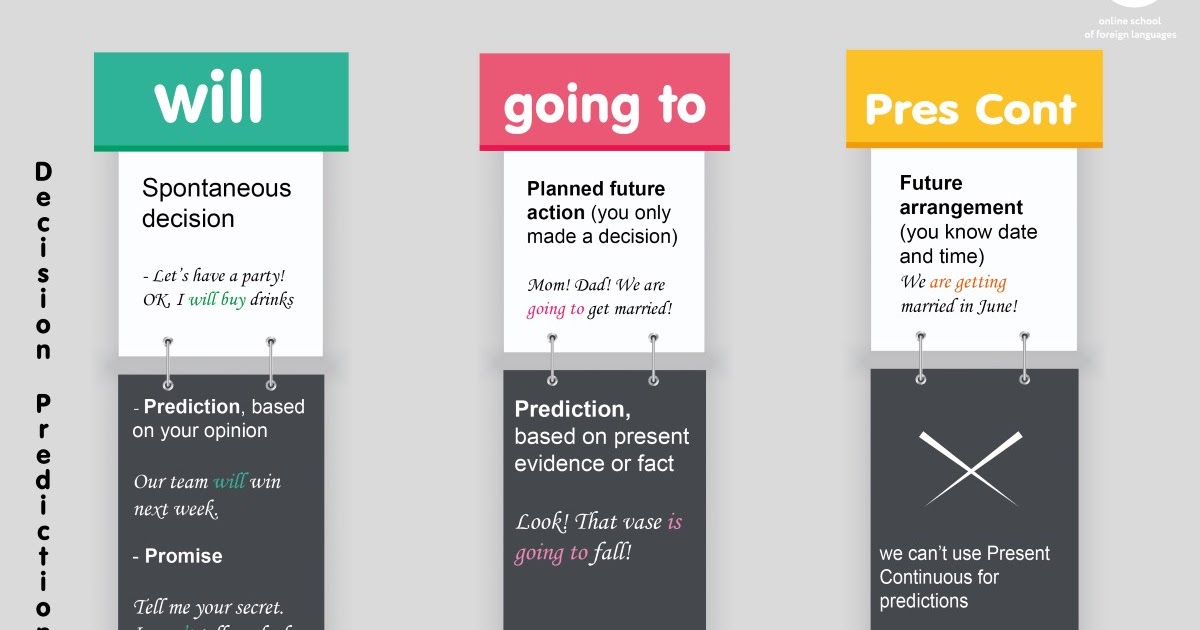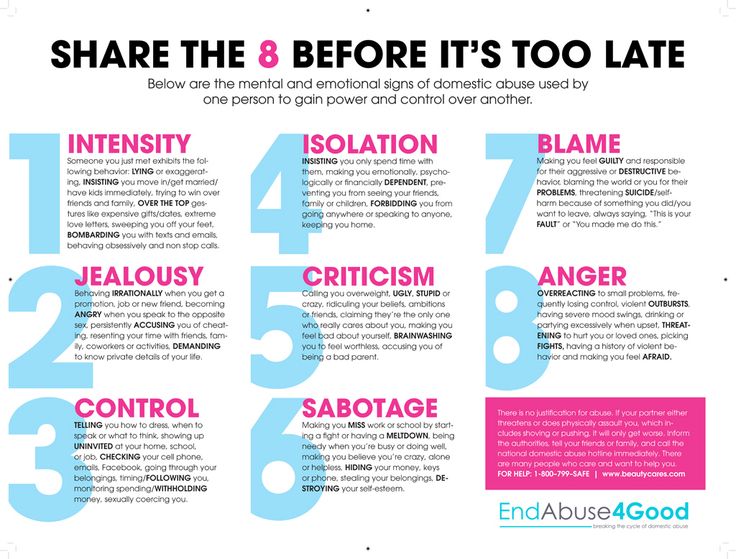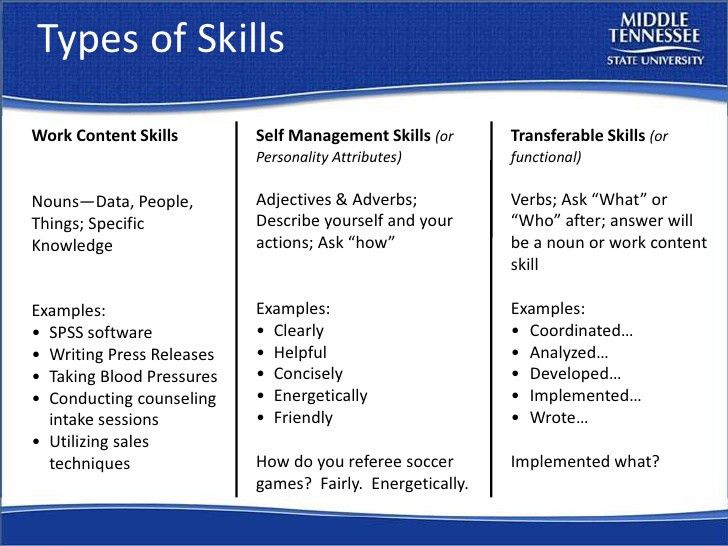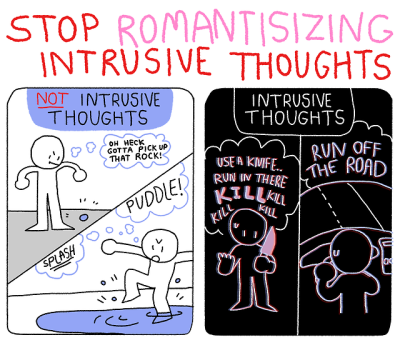Annoyed by everything
7 Reasons Why Everyone And Everything Annoys You
Disclosure: this page contains affiliate links to select partners. We receive a commission should you choose to make a purchase after clicking on them.
Annoyance isn’t a pleasant feeling. It gets in the way of living a happy, productive life where you can feel satisfied.
Annoyance rubs at you like a stone in your shoe. You feel it, but it’s often not extreme enough to really draw your full attention to it. You just kind of live with it until you finally realize that you are being annoyed by the world around you.
And once you realize how easily annoyed you are, you can start changing things to create a more peaceful space.
These negative emotions do serve useful purposes, though. Annoyance and irritability are both precursors to anger. They serve as a warning that what you’re experiencing is likely to push you toward an angry response.
It’s a way for your brain to give you a little bit of warning so you can try to avoid being entirely pushed into anger, which can have negative consequences.
But not all annoyance tracks from Point A to Point B so cleanly. There are other reasons why you might get so annoyed all the time.
So why does it seem like everyone and everything annoys you? What are the causes, and what can you do about each of them?
Speak to an accredited and experienced therapist to stop getting annoyed by every little thing and everyone. You may want to try speaking to one via BetterHelp.com for quality care at its most convenient.
1. You consume too much alcohol, caffeine, or other substances.
Many people use alcohol, caffeine, or other substances as a method of stress relief. The problem is that many of these substances actually cause more stress because of the long-term effect they have on the nervous system.
A couple glasses of wine may be a great way to relax for an evening. A couple of glasses of wine every evening, however, is not going to be so great months and years down the road.
Alcohol affects levels of serotonin and other neurotransmitters, which can increase anxiety and lead to moodiness. That effect can last anywhere from several hours right up to a whole day after drinking has ceased. [source]
That effect can last anywhere from several hours right up to a whole day after drinking has ceased. [source]
Caffeine is a stimulant and can amp up your nervous system. It doesn’t directly cause anxiety, but it does amplify anxiety in people who are predisposed to or already have an anxiety disorder.
That stimulation can cause anger and irritability, shorten patience, and lead to impulsiveness.
2. You don’t get enough sleep, or it is poor quality sleep.
The brain produces many of the feel-good, mood balancing chemicals that it needs for the next day during the deepest sleep stages.
People who don’t sleep well or fail to practice good sleep hygiene may find themselves getting irritable and annoyed very easily and on a regular basis. It’s hard to have patience when you’re exhausted.
Good sleep hygiene helps the quality of sleep that you get. That includes things like having a comfortable mattress and pillow, not having lights on in the room for your brain to pick up through your eyelids, and not using screens before bed.
Avoiding substances like caffeine, nicotine, and alcohol also improves the quality of sleep.
Cutting back on fluids after 6 P.M. can help you maintain deeper sleep by not having your body wake you up at 3 A.M. to use the bathroom.
For more information on getting a good night’s rest, read this: 14 Things To Do Before Bed That Will Put You Into A Deep, Restful Sleep
3. You’re not getting enough exercise.
Moving your body provides many mental and physical health benefits. Your brain produces endorphins and dopamine when you exercise (and you get some extra vitamins if you do it out in the sun!)
These chemicals help keep your moods balanced and your mind at ease. Exercise is a stress and anxiety relief that is all-natural and attainable for most people.
Even just taking a walk up and down the street for 20 minutes every few days will provide great benefit.
You may find that your annoyance and irritability reduces with regular exercise as stress relief.
4. You’re overtaxing yourself and need to reduce your load.
People are not machines. Most people have a difficult time maintaining a hectic schedule that keeps them busy, busy, busy.
That’s an efficient way to work yourself into anxiety and depression by not making any time to practice self-care or to unwind.
Irritability, annoyance, and shortness of temper go right along with those things.
Make sure that you create time for yourself in your schedule. If you’re a busy person, you may need to pencil rest breaks and exercise times into your schedule. Even a 15 meditation session can significantly reduce anxiety when used as a regular break.
It’s hard when you’re juggling work, family, and maintaining the home, which is why you will likely need to make time. Say no to some responsibilities and let someone else handle them so you can stop and take a breath.
5. The environment or the people around you aren’t healthy.
Not every bit of annoyance is unfounded. It may also be your brain trying to tell you that a situation or a person isn’t right for you.
It may also be your brain trying to tell you that a situation or a person isn’t right for you.
If you find that you are easily annoyed by the people around you, it may be that they negatively influence your peace of mind and happiness.
Your brain may be trying to get you to realize that you need to limit your time with these people or find a new environment that isn’t so stressful.
Maybe it’s family or people you don’t want to just cut off and wander away from. Maybe you love your career, despite how stressful it is and how obnoxious coworkers might be.
In that case, it’s good to take dedicated time away to give yourself a chance to reset. That may just be a weekend to yourself at a hotel or full use of any benefits your work may offer.
Many people avoid taking their sick time or vacation time because they are guilt-tripped into feeling like they aren’t a team player.
Don’t fall for that garbage. Take the time you earn when you’re able to. Take your vacations. Use your sick time when you need it. It’s yours. You earned it.
Use your sick time when you need it. It’s yours. You earned it.
6. Unresolved issues are starting to resurface.
Sometimes we don’t get the closure or compassion that we need to get over an upsetting situation.
It’s easy to swallow your anger for the moment, but it will undoubtedly come back sooner or later.
Annoyance can point to those emotions starting to resurface. It might be your brain telling you, hey, this was wrong, and we still haven’t resolved it in a way that we can be peaceful about.
You might be annoyed with a person or a situation. Did they mistreat you? Do they treat you with respect and consideration? Did they act with respect when you had a disagreement? Or did they ignore your concerns and blow you off?
The mind has a difficult time letting these kinds of situations go. If you are mistreated at work, and no one seems to care, your mind may be at unrest to tell you that you need to change or resolve the situation.
7. Your standards are too high.

Perfectionism can make you feel irritable and annoyed. A person who sets the bar for success at the same level as perfect condemns themselves to failure, anger, and annoyance.
No one is perfect, not even the perfectionist. And by continually reinforcing and telling themselves that they need to be perfect, they are guaranteeing that they won’t be able to create peace with the situation.
Few things are ever perfect, and the few things that appear to be likely aren’t or won’t be forever. That’s just how things go.
Perfectionism can be heavily related to anxiety and self-worth. A lack of value for oneself and your contributions may touch the same sensitive spots that annoyance, anger, and irritability do.
And expecting perfection out of other people is a recipe for disaster. You may be annoyed with other people because you’ve set the bar too far out of reach for them to be successful.
People are flawed, messy, often self-interested creatures. Still, the best way to approach them is with minimal expectations and compassion.
Maybe they can’t or don’t want to meet the standard you’ve set. Maybe they understand something about the standard you don’t, which changes where they set the bar.
Talk about it and try to find common ground with other people. And try that same conversation with yourself if you find that you’re annoyed with who you are.
Forgive yourself for not being perfect, because you’re not. No one is. People just don’t work that way.
Still not sure why you get so annoyed or how to stop getting worked up? Talking to someone can really help you to handle whatever life throws at you. It’s a great way to get your thoughts and your worries out of your head so you can work through them.
A therapist is often the best person you can talk to. Why? Because they are trained to help people in situations like yours. They can help you to uncover the underlying triggers for your annoyance and provide proven methods to address those things.
A good place to get professional help is the website BetterHelp. com – here, you’ll be able to connect with a therapist via phone, video, or instant message.
com – here, you’ll be able to connect with a therapist via phone, video, or instant message.
You might not think your problems are big enough to warrant professional therapy but please don’t do yourself that disservice. Nothing is insignificant if it is affecting your mental well-being.
Too many people try to muddle through and do their best to overcome issues that they never really get to grips with. If it’s at all possible in your circumstances, therapy is 100% the best way forward.
Here’s that link again if you’d like to learn more about the service BetterHelp.com provide and the process of getting started.
You’ve already taken the first step just by searching for and reading this article. The worst thing you can do right now is nothing. The best thing is to speak to a therapist. The next best thing is to implement everything you’ve learned in this article by yourself. The choice is yours.
You may also like:
- 12 Strategies To Use When You’re Feeling Irritable
- 20 Types Of Annoying People You Should Avoid
- 6 Reasons Why Introversion Can Lead To Irritability (+ What To Do)
- Emotionally Stable People Do These 7 Things Differently
- How To Be Less Emotionally Sensitive: 5 No Bullsh*t Tips!
One of Those Days? How to Deal When Everything Irritates You
“Be proactive not reactive, for an apparently insignificant issue ignored today can spawn tomorrow’s catastrophe. ” ~Ken Poirot
” ~Ken Poirot
Do you ever have one of those mornings where the battle against annoying minutiae begins before you’re even truly awake?
One of those days where you feel the illusion of control fully slipping away. You try to grasp and pull it back, but you really have no control over this day or its outcome, at all.
We dread these types of days, don’t we? The control freak in me gets uncomfortable thinking about it. Even the Meet The Parents movies make me unsettled, because as more and more things go wrong, I just want to cry out, “Stop it already! Stop making bad choices!”
I can’t guarantee that I can help you stop making bad choices, but I can give you tips for handling those days when everything minor breaks, stalls, or gets in your way.
I had a day like this when I was pregnant with my youngest. I never regained my energy back like they say you will in the second trimester. I was tired, achy, and feeling uncomfortably large one morning last spring. Still, being pregnant, with all its discomforts, was the highlight of my day.
Still, being pregnant, with all its discomforts, was the highlight of my day.
It started with an alarm that didn’t go off—well, we didn’t set alarms anymore. My daughter always wakes early, so no need. That day, she took the morning off. No wakeup call from the toddler.
We woke up running late in a panic. Then, as our cats had been doing lately, just for fun, they threw up their breakfast on the kitchen floor.
I looked at the stream of cat vomit and told my husband, “Your turn, I cleaned it up last time.”
He gaped at the floor, and then looked as if he was considering adding his own vomit to the pile. “No. Can’t do it.”
“UHHH!!” I fumed, and thus began a morning squabble, the bane of my existence. I hate fighting in the morning more than cleaning up cat vomit, but I was rattled from waking up quickly, so I just went for it and dove headfirst into a fight.
Fight over, we went our separate ways—he went to work and I stayed at home with our kid.
Later, my first new phone in four years showed up in the mail. Now, if you have ever tried to set up anything with a toddler in tow, you know it’s like trying to build Ikea furniture in a tornado. But I was excited and needed to reset the vibe of the day, so I called to set it up.
Now, if you have ever tried to set up anything with a toddler in tow, you know it’s like trying to build Ikea furniture in a tornado. But I was excited and needed to reset the vibe of the day, so I called to set it up.
A new phone shouldn’t have problems from the start, right? Seems reasonable, but I had to keep explaining to the representative that I was setting up a new phone.
We lost phone connection three times. My toddler needed helping five times. Suddenly both my old phone (that I was talking to the rep on) and my new one wouldn’t work. Confused, I was interrupted by a loud hissing.
I was making split pea soup in the cooker, which I had forgotten. The neglected pot was spewing hot soup goo all over. Meanwhile my sink, countertop, and the stove were full of dishes.
Old-fashioned pressure cookers are unpopular because if you move them quickly, you get burning steam shooting out at you. Most people don’t use old-fashioned pressure cookers because of this—smart people.
There was nowhere to move the pot.
So I had to move the pressure cooker pot in slow motion. I watched in horror as more and more hot goo spilled over the stove, counter, and flowed like a green boiling waterfall onto the floor.
I huffed with frustration and started cleaning up—phone temporarily a backseat issue—while trying to keep my kid away from the literal hot mess.
But I was also proud of myself. I hadn’t taken my frustrations out on anyone. I had carried myself with calm, even though I was boiling over, like the soup pot.
Smiling, I went to place the cleanup towels in the hamper. There, one entire corner of the floor was covered with broken picture frames and glass. I was shocked. And now broken glass? I hadn’t heard anything fall?? What?!
Suddenly, it was all too much. I felt anger and frustration rising inside of me. I had enough! I walked into the room away from my daughter and dad, and gave a little scream—not loud enough to scare anyone, but it was enough to release my steam valve.
I’m guessing you’ve had a day like this before. When one irritating thing after another happened, building major annoyance and frustration, making it hard to keep your cool.
How can we stop getting riled up by everything that goes wrong in a day?
Most of us in the Western world have become very busy and, by default, very reactive. This does not set us up well to handle unexpected annoyances. But there are a few things we can do to prepare for these days in advance, and a number of ways we can cope better so we don’t get epically annoyed with all the irritations happening around us.
A Preventative Plan for Managing Murphy’s-Law-Kinda Days
1. Be mindful of the influences around you.
The people we surround ourselves with and the information we consume affect our overall mood. If you’re constantly bombarded with criticism, judgment, or negativity, you’ll likely be primed to snap at little things.
Are your interactions with others positive and supportive? Is your partner or best friend kind to you? Do you have people around you who have your best interests at heart? Or is getting through every day like walking through a minefield of aggressive, explosive people?
I don’t have expertise in the area of extricating yourself from abusive or trying relationships, but there are plenty of people who do, so if you find yourself being mistreated and traumatized, take action to help yourself today.
If you aren’t surrounded by intentionally harmful people, yet you listen to news that drags you down and spend a lot of time with complainers and energy drainers, you are not protecting your sweet soul from the tarnishing effects of others.
I’m not suggesting that you insulate yourself from every negative thing, but can you minimize that which is optional?
Can you make an effort to consciously choose to surround yourself with people and media who lift you up and make you a better version of yourself?
2. Take good care of yourself so you’re balanced going in.
To thrive even with adversity, you need to take care of the animal that is your human body. This body needs fresh air, water, exercise, rest, and quality food. If you are depriving your body of any of these on a regular basis, it is simply a matter of time until you’re an angry, reactive mess.
Keeping up your good habits of exercising and eating well is essential. The food you put into your body affects your mood. Sugar can give us an energy high, but after it wears off then there’s an energy low, which can leave you feeling worse than before.
Sugar can give us an energy high, but after it wears off then there’s an energy low, which can leave you feeling worse than before.
An unhealthy diet high in sugar and processed food can contribute to depression. And living a sedentary life is a risk factor is well. Exercise releases endorphins, the feel-good hormone, which can help you keep calm when things go wrong.
If you don’t currently eat well and exercise regularly, a reactive, frustrating day can be a wake up call to start supporting a good foundation of health. Then you can weather these storms better.
3. Find some time during the day to be quiet, meditate, and get calm.
Meditation is like training for your mind. It literally rewires your brain to be calmer and less reactive, and it can significantly reduce stress and anxiety. By taking time on a regular basis to be quiet and contemplate, you can sometimes identify nagging small concerns before they become large concerns.
Spending time in nature can have a similar relaxing effect. Being in nature helps you center yourself and recharge—and there’s even some research to show that a certain bacteria in soil can act as a natural antidepressant.
Being in nature helps you center yourself and recharge—and there’s even some research to show that a certain bacteria in soil can act as a natural antidepressant.
If you can get out to nature, please do so as soon as possible. It always helps me immensely to get outside.
How to Handle Trying Days When They Happen
1. Ask yourself: Is it the day that is a problem, or is it me?
This is a tough love type of question, but I think it’s essential to pause and ask yourself what’s really going on. When you have a day in which everything and anything annoys you, take time to reflect. Ask yourself if it’s just a rough day, or if your reaction is a sign that something in your life is out of whack.
It might just be a fluke of a day where things are going funky right and left. Or maybe you’ve been letting little things build up, and things are boiling over because there’s something big you need to address that you’re ignoring—dissatisfaction with your work, or a compatibility issue in your relationship, for example.
If there is something big that you’re avoiding, can you face it? Can you find someone who will help you find the courage to address what you need to do—to face what you are afraid of?
2. Release your pent up emotions.
Modern living and working close with others means there are lots of times where we have to filter our words and our reactions to act like a responsible adult. All too often we stuff our feelings down until we’re ready to explode—and often on some innocent bystander who doesn’t deserve our rage.
A healthier approach is to feel and work through our feelings as they arise, and sometimes the best approach is to physically release them from our bodies.
The relief that a good primal scream or pillow punching episode can provide is so incredible (though these things are best done in solitude, so we don’t offload our emotions onto the people around us).
Elevated stress levels can be stored in the body and create muscle tension, and cause many other physical/emotional strain. But if we release the stress, we can fluidly move forward. Exercise can also help with this, since it gets our muscles moving, and our heart pumping—another good reason to get active!
But if we release the stress, we can fluidly move forward. Exercise can also help with this, since it gets our muscles moving, and our heart pumping—another good reason to get active!
3. Take the pressure off.
On some of my worst bad days, I give myself permission to check out and chill out. I take time to watch funny videos on YouTube or do a calming visualization meditation. It can feel tempting to plow through our to-do list, especially since we often tie our worth to our busyness and productivity. But sometimes you just need a break to regroup.
For example, can you find a few moments when you can sit or lie down? Then you can either relax or fill yourself with something silly and lighthearted. Animal videos, anyone?
4. Lastly, remember that it is okay to have a low day.
Life will ebb and flow. It’s all right for us to feel low, defeated, or sad some days. If you can cultivate a sense of non-attachment and tell yourself, “Well, that was one bad day. Tomorrow will be different,” you can release your feelings about what happened. You can acknowledge that one low day might just be a dip in a life that is largely good overall.
Tomorrow will be different,” you can release your feelings about what happened. You can acknowledge that one low day might just be a dip in a life that is largely good overall.
If it’s just one annoying day that is bothering you, you’ve likely got a lot still that you can be grateful for. When you can see that you are doing okay, that you have so many things going for you, even in the midst of challenging situations, then you know things are actually going quite well in your life!
Here’s to rolling with the tricky days and relishing in the good ones.
About Rachel Strivelli
Rachel Strivelli is a Happiness and Confidence Expander who can help you step into your own power with confidence and happiness. She regularly emails her subscribers uplifting content that helps them relax and smile. If you want to fall in deep love with your life, visit SoulPioneer.com to download your free guide to Reclaim your Joy.
See a typo or inaccuracy? Please contact us so we can fix it!
What to do if everything infuriates and irritates?
From time to time everyone wants to say the phrase “How everything infuriates me!”. And this is not surprising, because life consists not only of positive events.
And this is not surprising, because life consists not only of positive events.
Everyone knows the feeling of anger - this is a normal human emotion, which has its advantages. A flash of negativity allows you to throw out negative energy, can give motivation and stimulate activity. But sometimes everything infuriates to such an extent that the emotional state gets out of control: problems begin in personal relationships, work and other areas of life. In this case, anger becomes destructive and requires correction.
Anger is a negatively colored emotional state of varying intensity: from moderate irritation to intense rage. Such a reaction is reflected not only in mood and behavior, but also in the physiological parameters of the body. When a person is too long or too much infuriated by everything around, then the following physical changes appear:
- Increased activity of the limbic system, and then the adrenal glands and cerebral cortex, which leads to an intensive release of the corresponding hormones
- Hyperemia (redness) of the skin due to increased blood circulation
- Rapid heartbeat and breathing
- Increased blood pressure
- Muscle tension
- Increased sweating
- Scattered and narrowed attention
The patient may notice that his emotional background is not in order, because it interferes with a normal life. Usually a person says something like “I suck and therefore I can’t control myself”, but does not perceive this as a pathological condition with serious consequences.
Usually a person says something like “I suck and therefore I can’t control myself”, but does not perceive this as a pathological condition with serious consequences.
If everything irritates you regularly, be prepared for the fact that this will negatively affect your health, because the listed symptoms keep the body in great tension. If they occur too often, then this can lead to a breakdown of the adaptive mechanisms of the psyche and the body as a whole.
Uncontrolled attempts to suppress anger are also dangerous. Suppressed external aggression develops into auto-aggression, that is, it is directed inside oneself. This can lead to pathological consequences in the form of the development of passive-aggressive behavior, neuroses, psychosomatic disorders and various addictions. There is an effect on different systems of the body, such as cardiovascular, immune, digestive and nervous. This leads to an increased risk of developing hypertension and stroke, exacerbation of stomach and intestinal ulcers, and reduces immunity.
If you feel that the environment annoys you too often, then try to determine the cause and deal with it. Otherwise, it can cause significant harm to the physical and mental state.
Why is everything annoying
Anger is a secondary emotion that arises in response to a perceived threat. Anger itself is not considered a separate disease, but it is a common symptom of various pathological conditions. Reasons why everything infuriates and irritates:
- Personal characteristics. Temper is the backdrop for developing anger control problems.
- Childhood and upbringing. Some set behaviors and triggers may be related to the past. The cause of persistently suppressed anger may be related to the period of childhood: for example, punishment for expressing feelings or observation and fear of adults in anger.
- State of stress. Life's difficulties that lead to stress exhaust the nervous system and are a common reason why everything is annoying.

- Mental illness. Anger and irritability can be symptoms of obsessive-compulsive or bipolar disorder, depression, attention deficit disorder in children, and other ailments.
- Hormonal imbalance. Complaints of irritability and emotional lability are characteristic of hyperparathyroidism, hyperthyroidism, thyroiditis, and hypercortisolism. Also the question "Why does everything infuriate me and want to cry?" pregnant women and girls during PMS are often asked. This is due to a change in the hormonal background, in particular, the level of progesterone.
- Use of drugs and large amounts of alcohol. Drugs change the physiological processes of the body and have a detrimental effect on the psyche. Even isolated cases of use may be enough. The state of drug intoxication and withdrawal symptoms always become the reason why anger is inside and everything is annoying.
- Chronic pain and somatic diseases. They do not allow to relax, sleep and exhaust the nervous system.
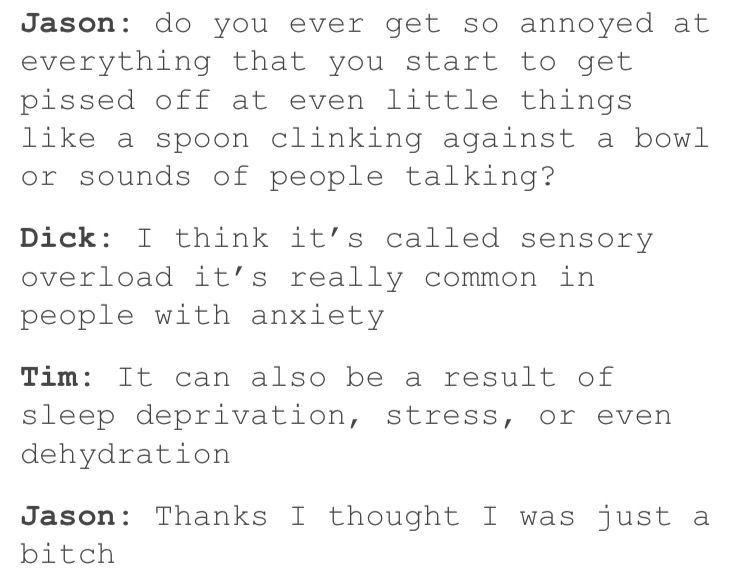
Irritability can be triggered both by sudden and short-term incidents, and by long-term situations. A person cannot always catch the reason why everything infuriates. This means that the elimination of the problem is unlikely. It happens that the response splashes out immediately, but sometimes it is suppressed and accumulates. The latter option is dangerous both for the state of health and for the environment - internal aggression can result in unpredictable aggressive actions.
Any of the reasons why everyone around you is annoying can be eliminated with the right approach. The problem does not always lie on the surface. Complex psychotherapeutic work may be required along with laboratory and instrumental examination of the body. If you cannot understand why everything annoys and infuriates what the reason is, an experienced specialist will definitely be able to figure it out. You should not put off seeking help, because the sooner you start to deal with the problem, the less consequences there will be for both health and social life.
What to do if everything infuriates and annoys
It is believed that anger is almost never a primary emotion. In most cases, with the help of anger, the subconscious mind tries to protect itself from feelings such as guilt, fear, pain, humiliation or powerlessness. If you have a negative attitude from morning to evening and you don’t know what to do when everyone is enraged, the advice of a psychologist can help you:
- Accept the fact that you have problems with anger control. Aggression is an inefficient and incorrect way of social interaction that leads to negative consequences and destroys relationships.
- Examine outbursts of negative emotions. Keeping an anger diary helps with this: write down the reasons for aggression there and evaluate the intensity. This will allow you to understand that the phrase “everything infuriates me how to deal with it” is not always true, because dissatisfaction has very specific reasons that cannot always be noticed without a close analysis of the situation.

- Use sports to release negative energy. Regular exercise and walking helps to stabilize the emotional state.
- If irritability has appeared recently and is associated with temporary difficulties, then rest will help you: change the situation, get enough sleep, do pleasant things. So that the nervous system can work with new forces, give it a break.
- Talk to loved ones. Obstacles are difficult to overcome alone. If you don't know what to do when everything is annoying and you don't want anything, the advice and support of loved ones can help
- Control the situation. Try to experience the next outburst of anger consciously. Mentally tell yourself: "This is not the biggest problem in the world, I can handle it." Do not respond with instant aggression, speak in an even voice, do not dwell on an unpleasant situation.
- Don't be afraid of professional help. If you have been regularly catching yourself thinking “everything is pissing me off how to calm down” for a long time and you can’t cope with it, don’t wait for the worst consequences.
 Seek help from a psychiatrist-psychotherapist or psychologist.
Seek help from a psychiatrist-psychotherapist or psychologist.
Everyone wants to get universal advice like “if everything infuriates you, do this or that and everything will pass right away.” Unfortunately, that doesn't happen. The psychological and physiological features of the development of anger are complex, so it is not always possible to cope with the problem on your own. If general advice does not help, then you should seek the help of a specialist who will determine what to do with irritability and anger in your particular case.
Psychotherapy. If you want to know what to do when everything is infuriating and annoying, then psychotherapy is a recognized method for solving problems in the emotional sphere. Cognitive behavioral therapy identifies pathological thoughts and internal beliefs that influence emotions and actions. The goal is to change the mindset that leads to anger responses into healthier and more productive ones. Also, psychotherapeutic techniques work on the problems of childhood traumas, inferiority complexes, parental prescriptions and other causes of inadequate emotional response.
Transactional analysis, group and family psychotherapy are used. In response to the question of what to do if everything infuriates, the patient is given advice on normalizing the lifestyle, teaching relaxation techniques and ways to correctly transfer the energy of anger into a productive channel.
Medical treatment. If anger is a consequence of mental disorders, then appropriate treatment is prescribed - sleeping pills, antidepressants, mood stabilizers, tranquilizers and other means.
Examination and treatment of chronic diseases. The diseased state of the body affects the functioning of the nervous system and the emotional background. If the primary cause of irritation is a somatic disorder, then nothing will work without its elimination.
If you feel that you have lost control of anger and irritation, then you need to learn how to deal with them. First, try to relax and normalize your lifestyle. But if self-help did not help and everything is still annoying, only a specialist will tell you what to do.
During psychotherapy sessions, you will deal with the triggers of negative emotions, learn about the consequences of your reactions in the short and long term. Together with the doctor, analyze the thoughts that precede the irritation and find out if they correspond to reality. Psychotherapy will teach you how to resolve conflicts in a more constructive way, helping you rebuild missed opportunities and relationships.
What to do when everything is annoying. Psychologist's advice
Health
© Evie Shaffer/Pexels
Author Alexandra Egorova
July 14, 2020
Do you notice that you overreact to little things? Do you chastise colleagues and lash out at loved ones? Increased irritability can signal unresolved problems or be a symptom of an illness. In any case, irritability must be dealt with.
The material was checked and commented by Olga Kitaina — psychologist, founder of the service for the selection of psychologists Alter
What is irritability
Advertising on RBC www. adv.rbc.ru
adv.rbc.ru
This state is often described as a mood. Unlike outbursts of anger or aggression, which are usually caused by specific events, irritability monotonously accompanies a person for some time. In everyday life, this is called "everything infuriates." Even the most minor everyday difficulties or setbacks — coffee suddenly ran out, a shoelace broke, a friend was late for a meeting — cause a distinct negative reaction [1], which seems too emotional.
Everything turns out one to one (only in a bad sense), a person does not expect anything good, and the next mistake is perceived with tired irritation and even gloomy satisfaction, as it makes it possible to express everything in the face of the first person who comes across.
Everyone can experience irritability, but it is not always a cause for alarm. We can talk about increased irritability, including in children and adolescents [2], if it interferes with normal life: it makes work difficult, overshadows communication with loved ones, and deprives them of the usual joys.
Causes of irritability
They can be divided into two large groups [3]: psychological and physiological. Unfortunately, this division does not give an answer in which cases you need to go to the doctor, and in which a person can handle it himself. The first group includes both temporary stress and serious psychological conditions that require attention from a specialist, such as bipolar disorder. The second also includes completely different conditions: lack of sleep and diabetes, unbalanced nutrition and toothache. Some conditions can be caused by infections (flu), others by hormonal disorders.
In women, additional causes of irritability can be premenstrual syndrome, menopause, polycystic ovary syndrome, and some others. In addition, irritability as a symptom of conditions common to both sexes [4] is more common in women.
In order to provide the doctor with the necessary information already at the first appointment or to cope on your own, it is worth observing your condition. Of course, as long as you don't feel any pain (like a toothache), you don't have a fever or other obvious signs that you need to go to the doctor immediately.
Of course, as long as you don't feel any pain (like a toothache), you don't have a fever or other obvious signs that you need to go to the doctor immediately.
© Anastasia Shuraeva/Pexels
What can be done at home
When you visit a general practitioner or specialist, the doctor will probably ask about your habits, daily routine, nutrition and physical activity, stress level. He will ask you to tell about the diseases of your relatives and the drugs you are taking, because irritability can also be a side effect of taking medications [5].
If you don't get enough sleep on a regular basis, you don't exercise enough, and you don't follow nutritional guidelines, you'll have to deal with this. Observations of oneself can be made the basis on which it is realistic to build physical and psychological comfort.
It is ideal to keep a diary of emotions and nutrition, note workouts and sleep time. Brief explanations will suffice, indicating probable causes (both physiological and emotional). In order to structure observations, you can indicate your state of one of the template marks. It can be, for example, a smiley or one of the pre-selected words. It is better to keep notes electronically, so you can quickly print your notes or email them to your doctor.
In order to structure observations, you can indicate your state of one of the template marks. It can be, for example, a smiley or one of the pre-selected words. It is better to keep notes electronically, so you can quickly print your notes or email them to your doctor.
Psychological causes of irritability
- chronic stress;
- poorly developed coping skills;
- insufficient self-care (not enough sleep, food, time for hobbies and loved ones).
Irritability can also be a symptom of depression, bipolar disorder, schizophrenia and other illnesses.
It is fundamentally important to understand whether you did not get enough sleep or do not tolerate being late at all? Headache unsettles you or are you sick of work? These states may overlap. And only observation and respect for yourself and others will help you figure it out.
How not to hurt the feelings of those you care about
Honesty is the best policy both with yourself and with your loved ones. Tell what you are experiencing. Not necessarily in all the details - only what you are ready to share, and what seems appropriate to you. If you explain to relatives and friends that your irritability is not a manifestation of hostility towards them, but a consequence of circumstances or your internal processes, it will be easier for them to understand and support you. To learn how to pronounce problems and accurately determine your condition, it is useful to develop emotional intelligence.
Tell what you are experiencing. Not necessarily in all the details - only what you are ready to share, and what seems appropriate to you. If you explain to relatives and friends that your irritability is not a manifestation of hostility towards them, but a consequence of circumstances or your internal processes, it will be easier for them to understand and support you. To learn how to pronounce problems and accurately determine your condition, it is useful to develop emotional intelligence.
Psychologist's comment
Olga Kitaina, psychologist, founder of the Alter psychologist selection service: “In a certain situation, irritability is useful - it signals that our boundaries have been violated, our values are under threat, something is not going according to plan. We tend to think of irritability as something bad, while anger can be experienced positively as a feeling of vitality and energy. Irritability becomes a problem when it leads to a reaction that is inappropriate for a stimulus, which in turn can lead to difficulties at work or in personal life.
Feeling annoyed is part of our lives and is absolutely normal, but we must remember that a certain reaction may be read by others as a violation of their rights and boundaries.
How to cope with irritability when it becomes a problem
During an attack
- ). This breathing helps to relax.
- Distract - try to distract yourself with something that will take your thoughts away from the irritant.
- Ventilate emotions - you can "reset" emotions in a useful way: move to a place where no one sees or hears you and yells into a pillow, tear paper that no one needs, inflate a balloon. All this makes it possible to channel the emotional charge that has arisen without harming anyone.
- Transition to assertive behavior [6] - learning not only to act out an emotional reaction, but also to take steps that would help correct the situation that causes an acute reaction. We always have a choice of reaction, we need to learn to catch a pause between the stimulus and our response to it and make a choice that is more useful for us.

After an attack
- Develop awareness and acceptance skills. Mindfulness techniques will help you develop your ability to linger between stimulus and response and choose more appropriate behavior. And developing acceptance skills will help you not perceive more stimuli as annoying. How to learn it? There is a lot of literature on the topic of mindfulness, there are applications that help in the development of this skill, you can find specialized trainings and classes. Psychotherapy, especially Acceptance and Responsibility Therapy (TPO), is helpful in developing acceptance techniques.
- After you've shown irritability in a bad way, say offended someone, you might think about what you can do to minimize the damage, such as apologizing. And most importantly, decide what you will do next. Planning our future actions makes it more likely that we will do so next time.
- Cognitive Behavioral Therapy (CBT) is considered the basic approach to dealing with irritability and anger in psychotherapy.


